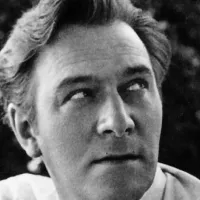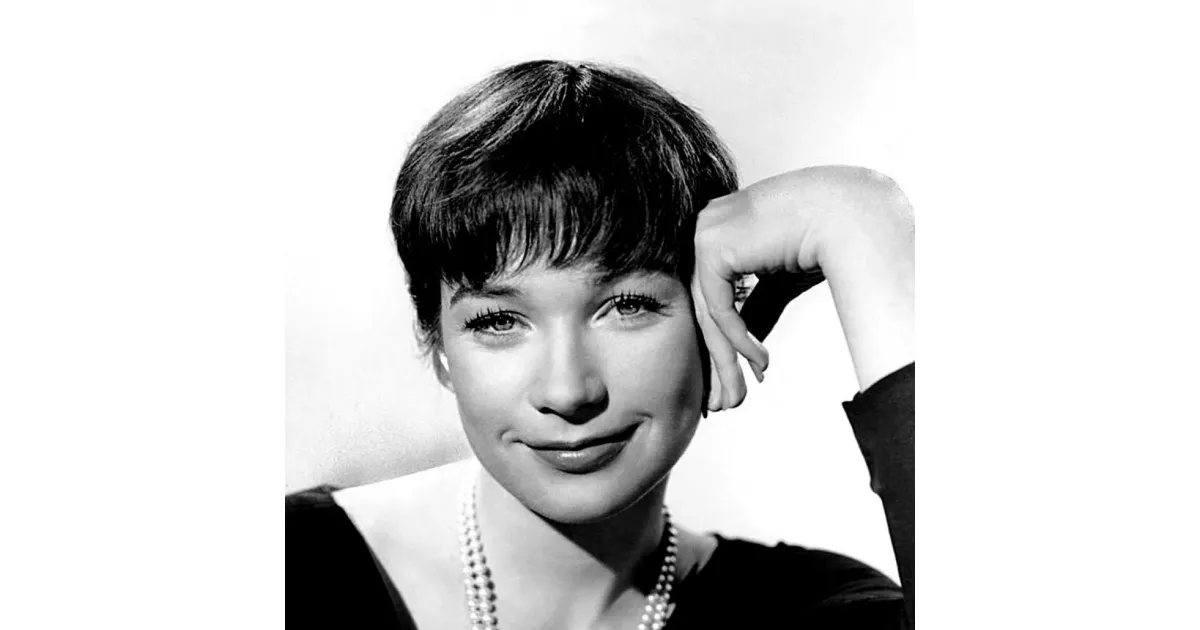American actress and author Shirley MacLaine has enjoyed a career spanning over seven decades. Her work has earned her an Academy Award, an Emmy Award, two BAFTA Awards, six Golden Globe Awards, two Volpi Cups, and two Silver Bears, among other honors. She received the Film Society of Lincoln Center Tribute in 1995, the Cecil B. DeMille Award in 1998, the AFI Life Achievement Award in 2012, and the Kennedy Center Honor in 2014. MacLaine is considered one of the last remaining stars from the Golden Age of Hollywood.
April 24, 1934: Birth of Shirley MacLaine
On April 24, 1934, Shirley MacLean Beaty, later known as Shirley MacLaine, was born. This event marks the beginning of her journey to becoming an iconic American actress and author.
1945: Family Moves and Baseball Prowess
In 1945, Ira Beaty, Shirley MacLaine's father, moved the family to Arlington, Virginia. Shirley, playing on a boys' baseball team, earned the nickname "Powerhouse" for holding the record for most home runs, highlighting her athletic abilities and competitive spirit.
1953: Broadway Debut in Me and Juliet
Shirley MacLaine made her Broadway debut in 1953, dancing in the ensemble of the musical "Me and Juliet." This early experience on stage marked the beginning of her professional career in the performing arts.
May 1954: Broadway Debut and Life-Changing Opportunity
In May 1954, Shirley MacLaine's understudy work in "The Pajama Game" led to a career-defining moment. When the lead actress, Carol Haney, was injured, MacLaine filled in, catching the eye of talent scouts and eventually signing with Paramount Pictures, marking the start of her journey to Hollywood fame.
1954: Start of Contract with Hal Wallis
In 1954, Shirley MacLaine signed a contract with producer Hal Wallis, a pivotal moment that marked the beginning of her journey in the film industry, launching her towards stardom. This contract would later be the subject of a legal dispute between MacLaine and Wallis.
1954: Marriage to Steve Parker
Shirley MacLaine and businessman Steve Parker wed in 1954.
1955: Breakthrough Role in The Trouble with Harry
In 1955, Shirley MacLaine's performance in Alfred Hitchcock's "The Trouble with Harry" marked a significant breakthrough in her career. Her performance earned her the Golden Globe Award for New Star of the Year – Actress, establishing her as a rising star in Hollywood.
1955: Film Debut and Golden Globe Win
Shirley MacLaine made her film debut in Alfred Hitchcock's "The Trouble with Harry" in 1955. Her performance earned her the Golden Globe Award for New Star of the Year – Actress.
1956: Around the World in 80 Days
In 1956, Shirley MacLaine starred in "Around the World in 80 Days," a film that went on to win the Academy Award for Best Picture, further solidifying her presence in Hollywood.
1956: Success with Around the World in 80 Days
Shirley MacLaine starred in "Around the World in 80 Days" in 1956, a film that won the Academy Award for Best Picture, further elevating her status in the film industry.
1958: Release of Multiple Films
1958 marked the release of three films featuring Shirley MacLaine: "Hot Spell," "The Sheepman," and "The Matchmaker." This signifies a period of high productivity and demand for her talent in the film industry.
1958: Releases of The Sheepman and The Matchmaker
In 1958, Shirley MacLaine appeared in two films: "The Sheepman" and "The Matchmaker," both contributing to her growing filmography.
1958: Critical Acclaim for Some Came Running
Shirley MacLaine's performance in the 1958 film "Some Came Running" earned her critical acclaim and her first nominations for both the Academy Award for Best Actress and the Golden Globe Award for Best Actress in a Motion Picture – Drama, marking a significant milestone in her career.
1959: Lawsuit Against Hal Wallis
In a landmark case that challenged the traditional studio star system in 1959, Shirley MacLaine filed a lawsuit against Hal Wallis over a contractual dispute.
1959: Career
Shirley MacLaine starred alongside Dean Martin in "Career" in 1959, marking their third film together.
1960: Can-Can and Ocean's 11
In 1960, Shirley MacLaine starred in the musical film "Can-Can" with Frank Sinatra and made a memorable cameo appearance in the Rat Pack's iconic heist film "Ocean's 11," solidifying her association with this legendary group of entertainers. MacLaine would go on to be considered an honorary member of the Rat Pack.
1960: The Apartment
MacLaine starred in "The Apartment" in 1960, a critical and commercial success that earned her a second nomination for the Academy Award for Best Actress.
1960: Critical Acclaim and Awards for The Apartment
Shirley MacLaine's performance in Billy Wilder's "The Apartment" in 1960 garnered widespread critical acclaim and commercial success. The film won five Academy Awards, including Best Picture, and earned MacLaine her second Academy Award nomination for Best Actress, along with a BAFTA Award, a Golden Globe Award, and a Volpi Cup for Best Actress. This performance solidified her status as a leading lady in Hollywood.
1961: The Children's Hour
In 1961, Shirley MacLaine starred in "The Children's Hour," a film adaptation of Lillian Hellman's play, showcasing her versatility as an actress.
June 11, 1963: Confrontation with Mike Connolly
On June 11, 1963, Shirley MacLaine's frustration with a Hollywood Reporter columnist, Mike Connolly, over his coverage of her contractual dispute with producer Hal Wallis, escalated into a physical altercation. The incident, making headlines, revealed MacLaine's fiery personality and willingness to stand up for herself in the face of what she perceived as unfair treatment.
1963: Irma la Douce
MacLaine's performance in the 1963 film "Irma la Douce" earned her a third Academy Award nomination for Best Actress and her second Golden Globe Award for Best Actress – Motion Picture Comedy or Musical.
1963: Irma la Douce and Third Oscar Nomination
Shirley MacLaine's performance in the 1963 romantic comedy "Irma la Douce," directed by Billy Wilder, earned her her third Academy Award nomination for Best Actress and her second Golden Globe Award for Best Actress – Motion Picture Comedy or Musical, solidifying her reputation as a versatile and acclaimed actress.
1965: Starred in "John Goldfarb, Please Come Home!"
In 1965, Shirley MacLaine starred in the Cold War comedy film, "John Goldfarb, Please Come Home!", which was written by William Peter Blatty.
1966: Co-starred in "Gambit"
In 1966, Shirley MacLaine co-starred with Michael Caine in the crime thriller "Gambit".
1966: Lawsuit Against Twentieth Century-Fox
MacLaine initiated legal action against Twentieth Century-Fox in 1966 for breach of contract. The studio had reneged on their agreement for her to star in a film adaptation of the Broadway musical "Bloomer Girl."
1967: Starred in "Woman Times Seven"
In 1967, Shirley MacLaine starred in Vittorio De Sica's episodic film "Woman Times Seven", portraying seven different roles in this collection of stories about love and adultery.
1968: Starred in "The Bliss of Mrs. Blossom"
Shirley MacLaine starred in the comedy film "The Bliss of Mrs. Blossom" in 1968.
1969: Starred in "Sweet Charity"
In 1969, Shirley MacLaine starred in the film adaptation of the musical "Sweet Charity", directed by Bob Fosse. Though Gwen Verdon was originally slated to reprise her role as Charity, MacLaine ultimately won the role, with Verdon assisting Bob Fosse with the choreography. MacLaine's performance garnered her a Golden Globe Award nomination for Best Actress.
1969: Sweet Charity
Shirley MacLaine took on the lead role in the film "Sweet Charity" in 1969.
1970: Publication of Don’t Fall off the Mountain
In 1970, Shirley MacLaine published her first memoir, "Don’t Fall off the Mountain." The book, recounting her life experiences and perspectives, marked her debut as an author and offered insights into her personal and professional life.
1970: Starred in "Two Mules for Sister Sara"
In 1970, Shirley MacLaine starred in the Western film "Two Mules for Sister Sara" alongside Clint Eastwood, in a role initially intended for Elizabeth Taylor. The film was a commercial success.
1970: Starred in "Desperate Characters"
Lew Grade produced the low-budget drama "Desperate Characters", starring Shirley MacLaine, in 1970. This was part of a deal related to "Shirley's World".
1970: Victory in Lawsuit Against Twentieth Century-Fox
MacLaine's 1966 lawsuit against Twentieth Century-Fox concluded in her favor in 1970, with the case upheld upon appeal by the California Supreme Court. This legal victory set a precedent in employment contract law and is often cited in law school textbooks.
1971: Starred in "Shirley's World"
From 1971 to 1972, Shirley MacLaine starred in the short-lived sitcom "Shirley's World", portraying a photojournalist. The series, co-produced by Sheldon Leonard and ITC Entertainment, was shot in the United Kingdom.
1971: Shirley's World
Shirley MacLaine starred in the sitcom "Shirley's World," which aired from 1971 to 1972.
1972: Political Activism for George McGovern
Alongside her brother Warren Beatty, MacLaine actively participated in George McGovern's 1972 presidential campaign, taking on fundraising and organizational roles. That same year, she authored the book "McGovern: The Man and His Beliefs."
1972: Starred in "Shirley's World"
From 1971 to 1972, Shirley MacLaine starred in the short-lived sitcom "Shirley's World", portraying a photojournalist. The series, co-produced by Sheldon Leonard and ITC Entertainment, was shot in the United Kingdom.
1972: Starred in "The Possession of Joel Delaney"
Shirley MacLaine starred in the supernatural film "The Possession of Joel Delaney" in 1972.
1972: Campaigned for George McGovern
Shirley MacLaine took a break from acting to campaign for George McGovern during the 1972 presidential election and the Democratic primaries.
1973: Part of the first women's delegation to China
In 1973, Shirley MacLaine was part of the first women's delegation to China, a journey documented in her 1975 film, "The Other Half of the Sky: A China Memoir".
1973: Declined role in "The Exorcist"
William Peter Blatty wanted to cast Shirley MacLaine as the mother in his film, "The Exorcist", but she declined the role. Having recently appeared in the supernatural film "The Possession of Joel Delaney" (1972), MacLaine opted not to take on another film with a supernatural theme. The role ultimately went to Ellen Burstyn.
1975: Released "The Other Half of the Sky: A China Memoir"
In 1975, Shirley MacLaine's documentary "The Other Half of the Sky: A China Memoir", co-directed with Claudia Weill, was released. The film documented the first women's delegation to China, which took place in 1973, and was nominated for an Academy Award for Best Documentary Feature Film.
1976: Performed at the London Palladium and New York's Palace Theatre
In 1976, Shirley MacLaine returned to live performances with a series of concerts at the London Palladium and New York's Palace Theatre. Her performance at the latter was recorded and released as the live album, "Shirley MacLaine Live at the Palace".
1977: Starred in "The Turning Point"
Shirley MacLaine made a career comeback in 1977 with her performance as a retired ballerina in the drama "The Turning Point", earning her critical acclaim and a fourth Academy Award nomination for Best Actress.
1977: The Turning Point
Shirley MacLaine starred in the film "The Turning Point" in 1977.
1978: Received the Women in Film Crystal Award
Shirley MacLaine was honored with the Women in Film Crystal Award in 1978, recognizing her contributions to expanding the roles of women within the entertainment industry.
1979: Being There
In 1979, Shirley MacLaine appeared in the film "Being There."
1979: Starred in "Being There"
In 1979, Shirley MacLaine starred alongside Peter Sellers in Hal Ashby's well-received satirical film "Being There". Her performance in the film earned her a British Academy Film Award and a Golden Globe Award nomination.
1980: Starred in "A Change of Seasons" and "Loving Couples"
Shirley MacLaine starred in two films about adultery in 1980: "A Change of Seasons", with Anthony Hopkins and Bo Derek, and "Loving Couples", alongside James Coburn and Susan Sarandon. Neither film achieved commercial success.
1982: Divorce from Steve Parker
After 28 years of marriage, Shirley MacLaine and Steve Parker divorced in 1982.
1983: Won the Academy Award for Best Actress for "Terms of Endearment"
In 1983, Shirley MacLaine starred as Debra Winger's mother in James L. Brooks' critically acclaimed comedy-drama "Terms of Endearment". The film, exploring the complexities of a mother-daughter relationship, was a box office hit, becoming the second-highest-grossing film of the year and garnering numerous awards, including the Academy Award for Best Picture. Both MacLaine and Winger were nominated for the Academy Award for Best Actress, with MacLaine securing her first and only win in the category for her performance. She also received a Golden Globe Award for Best Actress in a Motion Picture – Drama for her role.
1983: Publication of Out on a Limb
Shirley MacLaine published her best-selling memoir, "Out on a Limb," in 1983, sharing her personal experiences and beliefs on metaphysics, spirituality, and reincarnation.
1983: Academy Award Win for Terms of Endearment
Shirley MacLaine won the Academy Award for Best Actress for her performance in the comedy-drama "Terms of Endearment" in 1983, marking a significant career highlight.
1984: Starred in "Cannonball Run II"
Shirley MacLaine appeared in the film "Cannonball Run II" in 1984.
1987: "Out on a Limb" Miniseries Release
In 1987, a miniseries adaptation of Shirley MacLaine's bestselling autobiography, "Out on a Limb," was released.
1988: Starred in "Madame Sousatzka"
In 1988, after a four-year break from acting, Shirley MacLaine returned to the screen in the drama "Madame Sousatzka". Playing the title character, a Russian-American immigrant, she received positive reviews for her performance and was awarded her second Golden Globe Award for Best Actress in a Motion Picture – Drama.
1988: Madame Sousatzka
MacLaine starred in "Madame Sousatzka" in 1988.
1989: Released "Shirley MacLaine's Inner Workout: A Program for Relaxation and Stress Reduction through Meditation"
Furthering her interest in meditation and self-improvement, Shirley MacLaine released the VHS "Shirley MacLaine's Inner Workout: A Program for Relaxation and Stress Reduction through Meditation" in 1989. The VHS served as a companion to her book, "Going Within: A Guide for Inner Transformation", published the same year.
1989: Steel Magnolias
In 1989, Shirley MacLaine was part of the ensemble cast in the film "Steel Magnolias."
1989: Starred in "Steel Magnolias"
Shirley MacLaine starred in the commercially successful family Southern drama "Steel Magnolias", directed by Herbert Ross, in 1989. Her performance in the film, which explores the strong bonds of female friendship, earned her a British Academy Film Award.
1990: "Postcards from the Edge" Appearance
MacLaine performed a personalized version of "I'm Still Here" in the 1990 film "Postcards from the Edge." Composer Stephen Sondheim tailored the lyrics to reflect her persona.
1990: Postcards from the Edge
MacLaine starred in the film "Postcards from the Edge" in 1990.
1990: Starred in "Postcards from the Edge"
Shirley MacLaine starred in Mike Nichols' film "Postcards from the Edge" in 1990, appearing alongside Meryl Streep. The film was adapted from Carrie Fisher's semi-autobiographical novel of the same name, and MacLaine played a fictionalized version of actress Debbie Reynolds, Fisher's real-life mother. MacLaine received a Golden Globe Award nomination for her performance.
1991: "Defending Your Life" Appearance
In the romantic comedy "Defending Your Life" (1991), MacLaine made a cameo appearance, adding a layer of humor related to her interest in New Age spirituality.
1992: Starred in "Used People"
Shirley MacLaine starred in the film "Used People" alongside Jessica Tandy and Kathy Bates in 1992.
1994: Starred in "Guarding Tess"
Shirley MacLaine starred alongside Nicolas Cage in the film "Guarding Tess" in 1994.
1995: Film Society of Lincoln Center Tribute
In 1995, Shirley MacLaine was honored with the Film Society of Lincoln Center Tribute, a testament to her significant contributions to the film industry.
1996: Starred in "Mrs. Winterbourne" and "The Evening Star"
In 1996, Shirley MacLaine starred in two films: "Mrs. Winterbourne", with Ricki Lake and Brendan Fraser, and "The Evening Star".
1998: Cecil B. DeMille Award
In 1998, Shirley MacLaine received the Cecil B. DeMille Award, a prestigious lifetime achievement award presented by the Hollywood Foreign Press Association, recognizing her outstanding contributions to the entertainment industry.
2000: Made her directorial debut with "Bruno" ("The Dress Code")
In 2000, Shirley MacLaine made her first and only foray into feature film direction with "Bruno", in which she also starred alongside Alex D. Linz. The film was released on home video as "The Dress Code".
2001: The Apartment Named to Great Movies List
In 2001, esteemed film critic Roger Ebert included "The Apartment," featuring Shirley MacLaine's memorable performance, in his prestigious "Great Movies" list, cementing the film's legacy as a cinematic masterpiece.
2001: "These Old Broads" Film Release
Shirley MacLaine starred in the television movie "These Old Broads" in 2001, written by Carrie Fisher and co-starring Elizabeth Taylor, Debbie Reynolds, and Joan Collins.
2005: Starred in "Rumor Has It..." and "In Her Shoes"
In 2005, Shirley MacLaine starred in two films: "Rumor Has It...", alongside Kevin Costner and Jennifer Aniston, and "In Her Shoes", with Cameron Diaz and Toni Collette.
2005: In Her Shoes
Shirley MacLaine was part of the cast of the film "In Her Shoes" released in 2005.
2007: "Sage-ing While Age-ing" Publication
Shirley MacLaine released her book "Sage-ing While Age-ing" in 2007, detailing her experiences with and views on aging and spirituality.
2007: Starred in "Closing the Ring"
Shirley MacLaine starred in Richard Attenborough's film "Closing the Ring" in 2007, sharing the screen with Christopher Plummer.
2008: Coco Chanel
MacLaine starred as Coco Chanel in the biopic television film of the same name in 2008, for which she received Emmy, Screen Actors Guild, and Golden Globe Award nominations.
2009: "Coco Before Chanel" Performance and Nominations
MacLaine portrayed Coco Chanel in the Lifetime production "Coco Before Chanel" in 2009. Her performance garnered her nominations for both a Primetime Emmy Award and a Golden Globe Award.
April 2011: Discussion of UFOs with Oprah Winfrey
During an appearance on "The Oprah Winfrey Show" in April 2011, Shirley MacLaine discussed her experiences observing UFOs at her New Mexico ranch, a topic she had spoken about extensively in previous years.
April 2011: Revelation of Open Relationship
During an interview with Oprah Winfrey in April 2011 to promote her book, "I'm Over All That," MacLaine disclosed that she had an open relationship with her husband.
2011: Starred in "Bernie"
In 2011, Shirley MacLaine starred in Richard Linklater's dark comedy film "Bernie", appearing alongside Jack Black and Matthew McConaughey.
2011: Bernie
MacLaine starred in the film "Bernie" in 2011.
2012: Downton Abbey Appearance
Shirley MacLaine made appearances in the popular television series "Downton Abbey" from 2012 to 2013.
2012: AFI Life Achievement Award
Shirley MacLaine received the AFI Life Achievement Award in 2012, a prestigious accolade from the American Film Institute, celebrating her exceptional career in film.
February 7, 2013: Publication of "Lucky Me: My Life With – and Without – My Mom, Shirley MacLaine"
Sachi Parker's autobiography, "Lucky Me: My Life With – and Without – My Mom, Shirley MacLaine," was published by Penguin Group USA on February 7, 2013. However, MacLaine contested the book's accuracy, referring to it as "virtually all fiction."
2013: The Secret Life of Walter Mitty
In 2013, Shirley MacLaine appeared in the film "The Secret Life of Walter Mitty."
2013: End of Downton Abbey Role
In 2013, Shirley MacLaine's role in "Downton Abbey" concluded.
2013: "Downton Abbey" Appearance
Shirley MacLaine reprised her role as Martha Levinson in the fourth season of "Downton Abbey" in 2013.
2014: Kennedy Center Honor
In 2014, Shirley MacLaine received the Kennedy Center Honor, recognizing her lifetime artistic achievements and contributions to American culture.
2014: Starred in "Elsa & Fred"
In 2014, Shirley MacLaine reunited with Christopher Plummer in the comedy film "Elsa & Fred", directed by Michael Radford.
2014: Elsa & Fred
MacLaine starred in "Elsa & Fred" in 2014.
2016: "Wild Oats" Film Release
MacLaine co-starred with Jessica Lange in the film "Wild Oats," released in 2016.
2018: "The Little Mermaid" Film Release
In 2018, MacLaine appeared in a live-action adaptation of "The Little Mermaid," based on the Hans Christian Andersen fairytale.
2019: Noelle
In 2019, Shirley MacLaine appeared in the film "Noelle."
2019: "Noelle" Film Release
Shirley MacLaine took on the role of Elf Polly in the 2019 film "Noelle."
2022: Only Murders in the Building Appearance
In 2022, Shirley MacLaine made an appearance in the television series "Only Murders in the Building."
2023: Reflecting on 1972 Political Activism
By 2023, MacLaine's investment in political activism during the 1972 election, which amounted to $250,000 at the time (equivalent to $1,821,000 in 2023), highlighted the significant financial commitment she made to supporting causes she believed in.
2024: "American Dreamer" Film Release
"American Dreamer," a film starring Shirley MacLaine, premiered in theaters in 2024 after its initial premiere two years earlier at the Tribeca Film Festival.
Mentioned in this timeline

Oprah Winfrey is an influential American talk show host television...

Jennifer Aniston is a celebrated American actress best known for...

Jack Black born Thomas Jacob Black is a celebrated American...
California is a U S state on the Pacific Coast...

Christopher Plummer was a highly acclaimed Canadian actor with a...

Frank Sinatra nicknamed Chairman of the Board and Ol' Blue...
Trending

24 minutes ago Magda Linette Advances to WTA Dubaj Round 2, Fr?ch Eliminated, Other Final Matches

24 minutes ago Clara Tauson vs. Peyton Stearns: WTA Dubai 2026 Match Prediction and Preview

1 hour ago Jessica Pegula faces Varvara Gracheva in Dubai Tennis Championships second round.

1 hour ago NASA Warns of Undetected City-Killer Asteroids Posing Threat to Earth

1 hour ago Coco Gauff anticipates Dubai struggles, faces Kalinskaya; Alexandrova trending in WTA Dubai.
3 hours ago Canada vs New Zealand T20 World Cup 2026: Thrill, Live Scores, and Game Updates.
Popular
Randall Adam Fine is an American politician a Republican who...

Pam Bondi is an American attorney lobbyist and politician currently...

Kid Rock born Robert James Ritchie is an American musician...

Barack Obama the th U S President - was the...
The Winter Olympic Games a major international multi-sport event held...

XXXTentacion born Jahseh Dwayne Ricardo Onfroy was a controversial yet...
